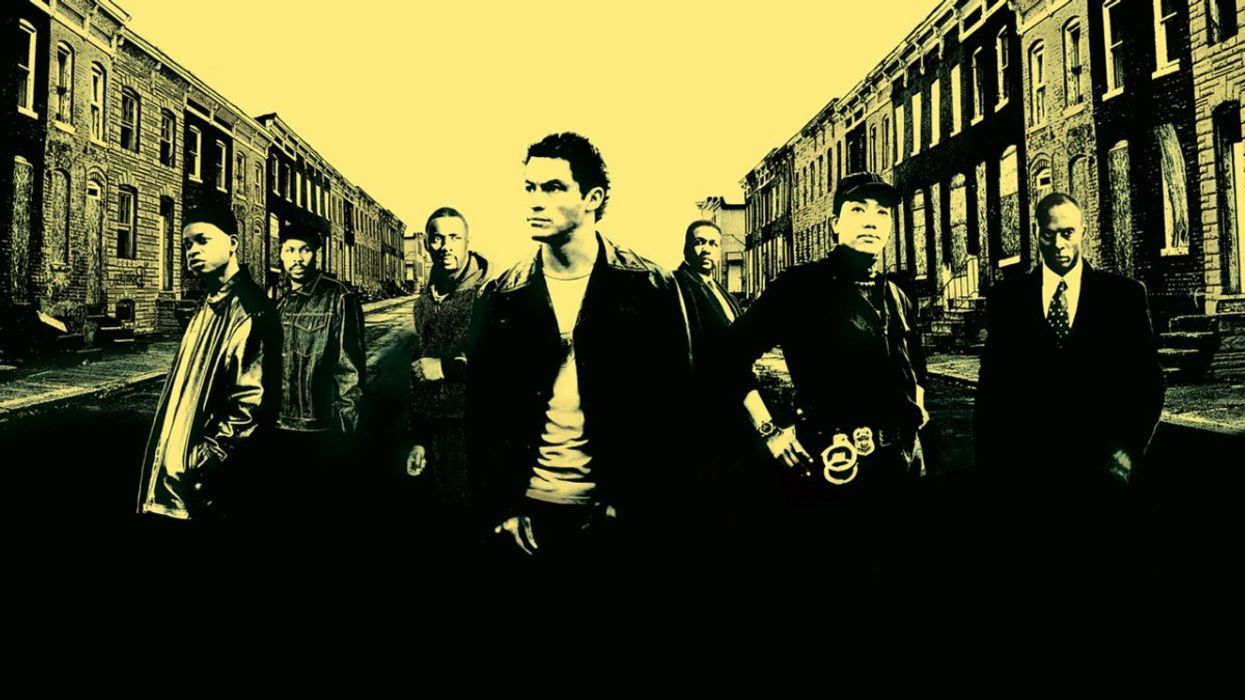10 Screenwriting Lessons from 'The Wire'
Ever wonder how they wrote "The Wire"? Hear David Simon and Ed Burns talk about their experiences in the writers' room and how they built five seasons of perfect television.

If you read No Film School a lot then you know I love to talk about The Wire. We've dissected Omar's code, examined aspect ratios, and even focused on its brilliant editing. But today I want to take a look at ten lessons you can take away from the writing of the show.
We will look at quotes from David Simon, Ed Burns, and see what other people have to say about the television show. This excellent video essay from Behind the Curtain gives us a bunch of screenwriting lessons from The Wire. I picked my ten favorites, so let's go over them together.
1. Survey the world you see
The Wire is about the war against the lower class and the explanation of how things got so bad. Simon and his writers did this by actually going out into the world, heavily researching, and becoming experts. This level of authority brought authenticity to the show.
2. Real human beings on a real human scale
We talk a lot about characters and their development, but no show has ever done "real people" better than The Wire. Most TV shows are heightened, but this one tries to stick as close to the real thing as possible. This authenticity bleeds from the screen, so next time you sit to write, talk to some real people. Get the details right.
3. Staff your room with diverse stories
Diversity in Hollywood is not only about the color of your skin, but also about your background. The Wire's room was full of journalists, cops, teachers, and people who understood the systemic racism and problems that affected the community of Baltimore. This diversity was responsible for many of the storylines and gave the show unique angles for every plot point.
4. Shit's going wrong, what makes it right?
David Simon tried to look at every season of The Wire by saying, "Shit's going wrong, what will make it right?" This habit of always building from the worst possible scenario toward people trying to make a difference was crucial to the show's themes. There are no easy answers. You work shouldn't contain them either. Challenge your characters to work and fail.
5. Be okay taking time to think and worry
Simon describes his approach as "doing anything to stay away from the computer." While this could be construed as procrastination, what he's really doing is working through all the bad ideas until the ideas flow from his fingers. So don't be afraid to take a walk and to come back. Your mind needs rest to get up the hill.
6. Don't tell a story because you're sustaining a franchise
This can be hard in today's society. Tell a story because it means something. Tell a story because you need your voice to be heard. We get so consumed with syndication and longevity that we forget to entertain and emote weekly. Get back to the root of the tale and see where it will send you.
7. Character is built on the spirit
When you're trying to make your character arc, you have to get deep into their soul. The people in your world need to be emblematic of the struggle you're trying to describe. What's the overarching lessons and who can teach a viewer at home why that lesson is important?
8. Anti-drama is the key to drama
Life is not built on big events. It's built on the small events day to day that gets us places. When you're writing, you can steer toward set pieces because they're the most fun. But a lot of life is tiny moments. The Wire does a great job keying us in on those moments and making them fresh.
9. Each character deserves human dignity
Protagonists and antagonists need to be treated with care. And have shades of grey. Too much time and effort are spent making clear lines, instead, we should blur them all over. Show wants and desires on both sides so that everyone has an accessible journey to the audience. Creating this grey area will show the allure of both sides and make people think and discuss.
10. Seek out some Greek drama
Who's a god in your world? Simon treats systemic systems like policing, education, and government like the Greek gods of old. They are the ones who control human fate. When you're taking this 10,000-foot view, you can then begin to assemble your pieces from the top to the bottom, getting into the details as you go.
What's next? Learn Screenwriting lessons from The Office!
"The Office" is one of the most successful shows in recent memory, due in large part to its excellent writing. Whether you're writing a short film script or a TV pilot, the challenges you have to face are...challenging. You've got character development to think about, you've got story structure to work out, you've got about a trillion other things to rework and reword and reconfigure until you have something that kind of looks like a final draft of a script.
So, yeah...that's a lot of technical stuff. And it's easy to lose sight of the non-technical stuff that is so important to the writing process while taking part in the writing process.
Click the link to learn more.
Source: Behind the Curtain











